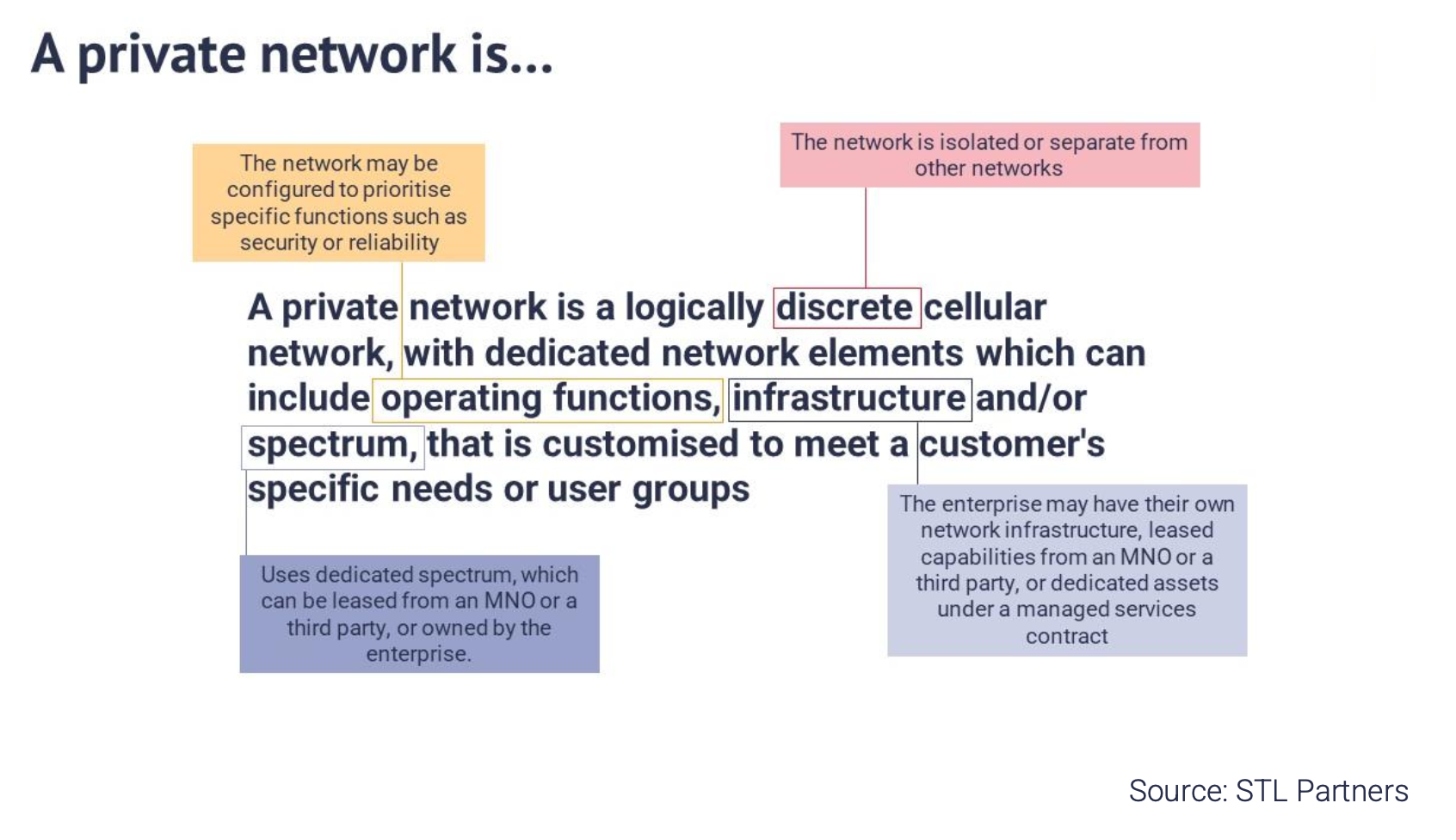What is a private network?
Private networks are playing an increasingly significant role in enterprise connectivity. To take full advantage of the opportunity, it is important for providers and enterprise customers to establish clarity around what constitutes a private network.
What is a private network?
A private network is a logically discrete cellular network, with dedicated network elements which can include operating functions, infrastructure and/or spectrum, that is customised to meet a customer’s specific needs or user groups.
A private network must have the following characteristics:
- Dedicated resources: These can include the network infrastructure, platform and/or spectrum. These resources are not necessarily physically dedicated, but can be logically dedicated, as in the case of network slicing.
- Dedicated user groups/SIMs: Access is controlled and is limited to certain user groups. Users will have logically dedicated SIMS, which in some cases may be virtual.
- Customised KPI’s: The private network is designed and customised to meet use case requirements that can’t be met by best-effort public networks.
For a network to be classified as a private network it does not have to be entirely dedicated. For instance, the network functions may be dedicated but the spectrum used may not be. The makeup and geographical span of a private network can vary significantly. A private network can consist of a single radio cell covering a factory, or it can extend across a nationwide railway network.
We have chosen to keep our definition of a private network relatively broad to ensure that a range of different propositions, all of which can offer unique performance benefits to customers, can be categorised under the term. The different delivery mechanisms for private networks can be thought of as items under the private networking menu.

Why we need a clear definition of private networks
Private networks offer a new mode of enterprise wireless connectivity. They offer unique capabilities that alternative technologies, such as Wi-Fi, Bluetooth and ethernet, cannot deliver. The benefits that private networks can offer enterprises include, enhanced security, reliability, coverage, control, mobility, and ultra-low latency, which can be tailored to each customers’ specific requirements.
Enterprise customers are becoming increasingly intrigued by the ways that private networks can benefit their businesses. In turn, telcos and vendors recognise the significant revenue opportunity that private networks present.
Yet, on both sides; providers and customers, there is still a lack of clarity over what counts as a private network and the packaging of different propositions. In our report, Private networks: A practical industry guide for manufacturing, we found that only 20% of manufacturers who believed they were using a private 5G service were doing so in reality. This lack of enterprise knowledge highlights the need for clarity around private networks. Better communication about solutions will ensure providers and customers can extract the maximum benefit from the private networking opportunity.















![Toni Kroos là ai? [ sự thật về tiểu sử đầy đủ Toni Kroos ]](https://evbn.org/wp-content/uploads/New-Project-6635-1671934592.jpg)


